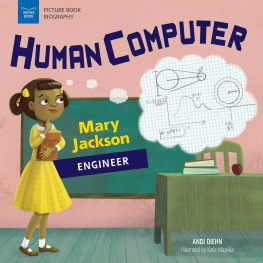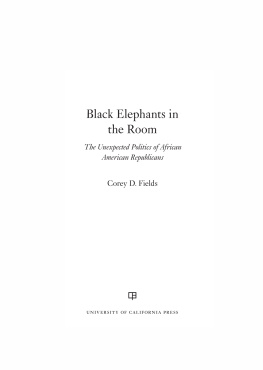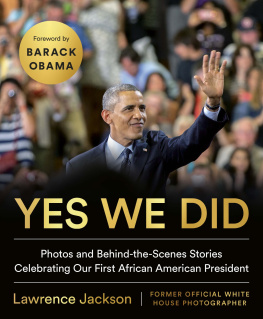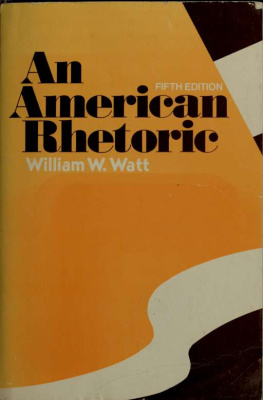Routledge
Taylor and Francis Group
270 Madison Avenue
New York, NY 10016
Routledge
Taylor and Francis Group
2 Park Square
Milton Park, Abingdon
Oxon OX14 4RN
Copyright 2003 by Taylor & Francis Books, Inc.
Routledge is an imprint of the Taylor & Francis Group.
All rights reserved. No part of this book may be reprinted or reproduced or utilized in any form or by any electronic, mechanical, or other means, now known or hereafter invented, including photocopying and recording, or in any information storage or retrieval system, without permission in writing from the publishers.
Library of Congress Cataloging-in-Publication Data
Understanding African American rhetoric : classical origins to contemporary innovations / edited by Ronald L. Jackson II and Elaine B. Richardson.
p. cm.
Includes bibliographical references and index.
ISBN 0-415-94386-8 (alk. paper) ISBN 0-415-94387-6 (pbk. : alk. paper)
1. African AmericansLanguages. 2. English languageUnited StatesAfrican influences. 3. English languageUnited StatesRhetoric. 4. African languagesInfluence on English. 5. African AmericansCommunication. 6. Black English. I. Jackson, Ronald L., 1970 II. Richardson, Elaine B., 1960
PE3102.N42 U53 2003
427' .973'08996073dc21
2002015432
Orlando L. Taylor
T he word access is often the first word that comes to mind when asked about the impact of the civil rights movement of the 1960s on American life. This is certainly a reasonable designata for capturing the rights achieved by African Americans and others as a result of what might easily be considered as the most important social justice advocacy period of the twentieth century. The movement led directly to access for all Americans and included such important aspects of democratic citizenship as voting rights, fair housing, equal employment opportunity, and accessibility, as well as public accommodations. The civil rights movement hastened the issuance of legislative mandates, judicial rulings and executive orders that advanced the principles of social justice for all that constitute the cornerstone of a democratic society.
As important as access has been in achieving a semblance of inclusion for African Americans and other people of color in American life, empowerment of voice in academia has been at least of equal importance as an outgrowth of the civil rights era. This sort of empowerment means, among other things, both agency and access to the tools for projecting the voices of historically marginalized individuals or groups to mass audiences and, in the academic world, recognition of the significance of a groups voice in the formulation of the core theories and values of a discipline. Both came about in the wake of the civil rights movement for African Americans in the discipline of communication, as well as other fields.
In the academy, empowerment of voice cannot be overstated. With it, scholars from historically marginalized groups acquire access to the vehicles needed to disseminate ones perspectives and paradigms across mass academic venuesjournals, books, and programs of professional and disciplinary meetings. It also results in these voices being recognized by the gatekeepers of the disciplines as legitimate contributors to their perceptions of truth. That is to say that the voices of the historically marginalized come to be seen as essential contributors to the disciplines theory and practice with equal status alongside other voices. Truth, after all, in most disciplines, especially in the social sciences and humanities, is typically a perception of truth viewed through a prism of culture. Unless the views and voices of diverse groups are heard by a discipline, fair and balanced truth telling can never be achieved. At best, we will have acquired only a narrow perception of that truth, indeed a fragmented accoutrement of the truth.
The mainstream communication academic community before the civil rights movement placed little value on the voices of African Americans or of African American scholars. One needs only to peruse the annual indexes of the mainstream communication journals before the civil rights movement to validate this claim. Certainly there was scholarship conducted on African American communication before this period, but it was often articulated with a White voice and often depicted in uncomplimentary terms. Even such eminent scholars as H. L. Mencken, along with countless others, typically portrayed African American communication as being primitive, backward, and childlike. It was often portrayed in the media as a form of mumbo-jumbo and was used frequently to entertain White audiences (e.g., minstrel shows) or to portray White supremacy and Black inferiority (e.g., D. W. Griffiths Birth of a Nation, one of the first major talking movies to hit the silver screen).
Most important, African American communication and its philosophical roots rarely, if ever, made it into the mainstream communication literature. African American scholars were rarely heard in public scholarly discourse, and little room was given to African American communication as a major contributor to human communication and its theoretical foundations. In my day as a graduate student in communication, for example, the roots of rhetoric were largely attributed to the Greek philosophers, most notably Aristotle. This was done with no regard for the need to consider other classical rhetorical legacies. With this particular book, Understanding African American Rhetoric, comes a greater recognition and understanding of the concept of orature from the African rhetorical traditionwhich dates back to before the rise of Greek civilization.
Even still, it is mystifying that we continue to witness a largely historical and intellectual amnesia within rhetorical studies that may be remedied only by books such as the one you hold in your hands. Volumes such as these interrogate the flawed singularity of truth telling in rhetorical studies not only by exposing the limitations of the European-centered literatures hegemonic intent, but also by centralizing and celebrating the uniqueness of another rhetorical tradition, that of African Americans. More recently, there has been increasing acceptance of such theories as Afrocentricity, as described by Molefi Asante, within the core framework of communication theory. This book contributes to that advancement, with several chapters explicating and critiquing Afrocentricity, in addition to a chapter written by Molefi Asante.
With eighteen chapters and twenty-two contributors, Understanding African American Rhetoric is able to deliver a compelling and truly remarkable range of historical and contemporary insights, each of which offers brilliant excursions into the quest for truth. Each essay in










